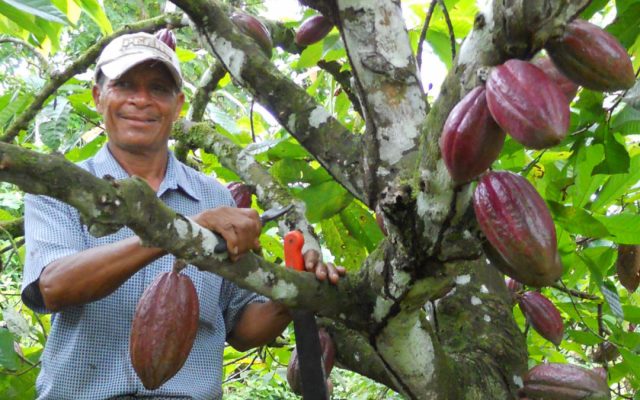In the two years since Colombia’s Congress ratified a peace treaty between the government and the Revolutionary Armed Forces of Colombia (FARC), thereby ending the longest-running insurgency in Latin America, some positive signs have emerged. Thousands of FARC members have turned in their arms. Some have started businesses with the aim of luring tourists to rural regions where war raged for more than half a century.
Although the new government that took power in August 2018 has taken a harder line against the FARC, it recognizes that reintegration is essential to ensuring former combatants do not take up arms again. When people have legal economic opportunities that provide a good standard of living, they are less likely to pursue illegal paths, such as coca cultivation and drug trafficking, even if it means less money in their pockets. The specifics of reintegration and a special justice process for the FARC remain highly contentious, but the new government is not discarding the process or the accord.

The 2016 peace treaty opened the door for businesses to pave the way to a brighter future for Colombia. Entire swaths of the country have untapped economic potential in industries such as cattle, cocoa, flowers, and fruits, and tourism. Some regions remain very dangerous but hold great opportunity if they can be pacified. To attract investment and boost the economy in former conflict regions, the previous government created a tax incentive plan in 2017 offering benefits for companies that invest in the Zones Most Affected by the Conflict (ZOMAC), which the new government is continuing.
CIPE and its local partners, Jaime Arteaga & Asociados (JA&A) and Consejo Gremial Nacional, are creating an Observatory of Private Investment in the ZOMAC to promote responsible business investment. The Observatory will monitor changing circumstances, track investments and newly created businesses, and watch how government tax incentives are being utilized. With CIPE’s in-country representative JA&A taking the lead, this project will work with civil society leaders and local chambers of commerce to encourage democratic dialogue around new investments and strengthening institutions in post-conflict zones. The Observatory will share its findings with national and international audiences. Consejo Gremial Nacional, a leading institution for the private sector and chambers of commerce, will play a key role in the Observatory’s work. In addition to registering new businesses receiving tax incentives, chambers have the capacity to orient businesses toward making responsible investments by explaining the local circumstances, connecting outside investors with community leaders, and offering the chambers’ arbitration and conciliation centers to resolve disputes that arise.

Through investment in former conflict areas, the private sector can take the lead in supporting democratic institutions in parts of Colombia that have long lacked a state presence. Businesses can provide opportunities to communities that have historically been marginalized or victimized by violence, and at the same time demand that the government work to bolster rule of law, property rights, a functioning justice system, and other democratic institutions essential to a free market system in the ZOMAC. Companies looking for guidance on investing in the country’s untapped regions can download the “Guide to Responsible Investment in Post Conflict Zones” in English and Spanish.
Because of the steps Colombia has taken toward achieving peace, foreign direct investment has risen considerably, along with the country’s credit rating. The tax incentive plan being continued by the new government offers generous tax benefits to businesses that set up shop in the 344 prioritized ZOMAC municipalities. Income tax is waived until 2021 for micro and small enterprises that open in the ZOMAC. From 2021 to 2024, micro and small enterprises will pay just 25% of the standard income tax. From 2024 to 2027, they’ll pay 50%. Medium and large companies will pay just 50% of the standard income tax rate until 2021. Between 2022 and 2027, they will be charged 75% of the normal rate.

CIPE and partners hope to support the Colombian government in encouraging responsible investment in legal industries to offer people an alternative to illicit incomes. The cultivation of coca, the raw material for cocaine, has soared to record highs. Money made in the drug trade and other illegal activities, such as logging without permits and illegal mining, could undermine peacebuilding efforts and delegitimize democratic institutions through corruption and the flow of illegal funds. In a September 2018 speech at the U.N. General Assembly, recently inaugurated President Iván Duque said, “For peace to prosper in Colombia, we must defeat drug trafficking.” To that end, the Colombian government has encouraged coca growers to quit harvesting coca in exchange for cash payments and help in transitioning to legal crops. More than 124,000 coca farmers had signed up by August 2018.
Colombia is Latin America’s oldest democracy. Through the Observatory’s monitoring and reporting, CIPE and partners aim to encourage the business community to work with government to achieve common goals: strengthening the local economy and improving the quality of life for Colombian citizens in areas that were historically marginalized. Working together, business and government can improve democratic institutions and strengthen laws to improve the business climate, helping to make peace sustainable.
Kathryn Walson is CIPE’s Staff Writer and Editorial Content Specialist.
Tim Ridout is CIPE’s Program Officer for Latin America & the Caribbean.
Published Date: December 07, 2018